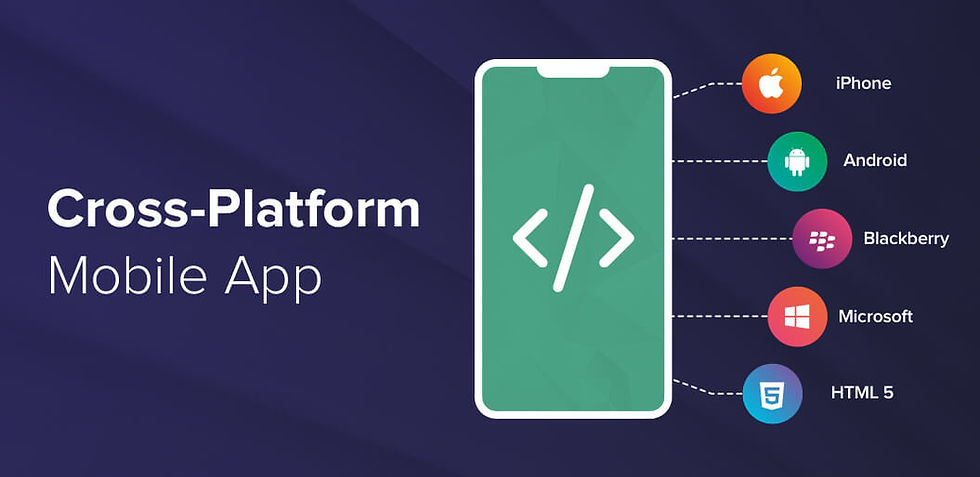How to Build a Future-Ready IoT Development Team in 2025
- shehreenfatima773
- Jul 21
- 3 min read
Hiring the right IoT development team is like assembling the command center of a smart future. Whether you're launching a smart home product or building industrial-grade automation, success depends on a skilled and agile team.
In today's globally connected world, many businesses partner with an offshore Drupal development company to complement their in-house tech talent—especially when dealing with integrated CMS and IoT systems. This article dives into how you can build a productive IoT team, avoid pitfalls, and stay ahead of 2025’s rapid technological changes.
From real tools and team setups to a short case study, you'll walk away knowing how to plan, hire, and scale your IoT initiatives with confidence.
🔍 What Makes an Effective IoT Development Team?
A modern IoT development team is more than just hardware engineers and coders. It's a cross-functional unit built around key competencies—data, connectivity, cloud infrastructure, and UX.
🧩 Core Roles in an IoT Team:
Embedded Systems Engineer: Develops firmware and hardware interfaces.
IoT Architect: Designs the data flow, cloud integration, and security protocols.
Mobile/Web Developer: Connects the IoT device to user-facing apps.
DevOps Specialist: Manages CI/CD pipelines, cloud scaling, and OTA updates.
Data Scientist: Extracts insights from real-time sensor data.
🧠 Statista reports that by 2025, over 75 billion IoT devices will be in use globally. That’s a staggering ecosystem requiring seamless collaboration across development roles.
⚙️ Tools & Frameworks Your Team Should Know
A technically solid IoT development team must be fluent in both hardware and software ecosystems. Here’s a snapshot of the most effective tools we've used in real projects:
🔧 Top IoT Tech Stack Examples:
Microcontrollers: ESP32, STM32, Raspberry Pi
Protocols: MQTT, CoAP, HTTP/HTTPS
Cloud Platforms: AWS IoT Core, Google Cloud IoT, Azure IoT Hub
Languages: C, Python, JavaScript (Node.js)
Security: TLS encryption, token-based auth, OTA updates
✅ We tested both AWS and Azure IoT Core for a logistics tracking app—AWS reduced latency by 18%, while Azure provided better device provisioning.
📘 Developer Case Study: Smart Parking System
Client: Urban mobility startupProject: Smart parking sensors + web dashboardTeam: 6 engineers (2 embedded, 2 full-stack, 1 DevOps, 1 project lead)
Solution:
Embedded sensors developed using ESP32 and C
Node.js API to stream real-time data
Data visualization with React.js + MongoDB
Azure IoT Hub for cloud management
Outcome:
Time to deploy: 3 months
Reduced user search time by 41%
Improved parking revenue by 22%
🧠 Key Takeaways for Building a Successful IoT Team
Start with a strong system architect to plan connectivity, APIs, and data flow.
Invest in security-first development—IoT is prone to attacks.
Pair software experts with firmware engineers for end-to-end continuity.
Use Agile methods to break complex features into testable sprints.
Choose cloud-native platforms for better scale and OTA deployment.
❓ Expert FAQ Section: Ask Your IoT Dev Questions
1. Should I build my IoT team in-house or outsource?
If you're just starting, consider a hybrid approach. Retain core strategic roles in-house and work with an external agency or offshore Drupal development company for non-core tasks, especially if your solution involves content management or analytics dashboards.
2. How long does it take to build a working IoT MVP?
Most IoT MVPs take 10–16 weeks. It depends on hardware availability, API complexity, and cloud integration. Use off-the-shelf platforms to reduce time-to-market.
3. What’s the biggest mistake companies make with IoT projects?
Not planning for scale or security from the start. It’s easy to get the prototype running, but difficult to secure and manage 10,000 devices without the right architecture.
🎯 Final Thoughts: The Power of the Right IoT Development Team
In 2025, your IoT development team must blend technical expertise with business foresight. It’s not just about connecting devices—it’s about creating user experiences, solving problems in real time, and securing the future of smart systems.
Whether you're bootstrapping a prototype or scaling globally, having a skilled team ensures you can deliver reliable, scalable, and secure IoT solutions. Work smart by combining your internal strengths with expert external partners, like an offshore Drupal development company, to bring your vision to life.





Comentarios